November 2022

Accomplishment through Practice
It looks as though this principle appealed to Arjuna’s mind, in the course of teaching of the true nature of the ātmā. However, he still had doubts regarding the practice.
cancalaṃ hi manaḥ kṛṣṇa pramāthi balavad-dṛḍham।
tasyāhaṃ nigrahaṃ manye vāyor-iva suduṣkaram॥ BG 6.34
Arjuna says — "Kṛṣṇa, is not the mind fickle? It can impede the path of the jīva and shake it, can it not? Is it possible to bottle up...

ಪಾರ್ವತಿ. ಇವಳೂ ಜವರಾಯಿಯಂತೆ ಜೀವನದ ಬಗೆಗೆ ಆಸ್ಥೆಯುಳ್ಳವಳು. ಯಾವ ಕೆಲಸ ಮಾಡಿದರೂ ಅದರಲ್ಲಿ ಒಪ್ಪ-ಓರಣ ಇರುವಂತೆ ನೋಡಿಕೊಳ್ಳುವ ಮನೋಭಾವದವಳು. ಈಕೆಯನ್ನು ಹುಟ್ಟು-ಸಾವುಗಳಿಗೆ ಹತ್ತಿರವಿರುವ ನರ್ಸ್ ಉದ್ಯೋಗದವಳೆಂದು ಚಿತ್ರಿಸುವ ಮೂಲಕ ಭೈರಪ್ಪನವರು ಔಚಿತ್ಯ ಕಾಪಾಡಿಕೊಂಡಿದ್ದಾರೆ. ಇದರಿಂದ ಕೃತಿಯ ಕಥನತಂತ್ರಕ್ಕಾದ ಪ್ರಯೋಜನ ಬಲು ಮಿಗಿಲು. ನಾಯಿನಾಗರಾಜಯ್ಯನ ಸಾವಿನಿಂದ ತತ್ತರಿಸುತ್ತಿದ್ದ ಜವರಾಯಿಯ ಭಾವತುಮುಲವನ್ನು ಸಹಾನುಭೂತಿಯಿಂದ ಅರ್ಥಮಾಡಿಕೊಳ್ಳಲು ಪಾರ್ವತಿಗೆ ನೆರವಾದದ್ದು ಅವಳ ವೃತ್ತಿ. ರೋಗಬಾಧಿತರನ್ನು ಪ್ರತಿದಿನವೂ ನೋಡುತ್ತಿದ್ದ ಅವಳಿಗೆ ಸಾವಿನ...
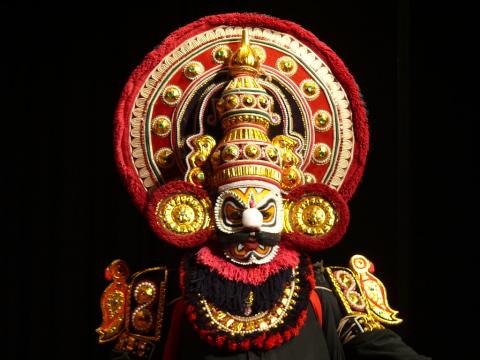
Vācika
Mātu and dhātu are the two aspects of vācikābhinaya. They can be loosely translated as lyrics and music, respectively. Gadya, padya, and gīta (pada) are the components of mātu. Gāna and vādana tuned to śruti and laya constitute dhātu. We shall have a look at the vācikābhinaya of Yakṣagāna in the same order.
One of the unique features of Yakṣagāna is the extempore speech that artistes deliver on the stage while playing character roles....

The Story of Guṇavatī and Candravatī
A king called Guṇasāgara ruled Kaṭāhadvīpa. He begot a daughter named Guṇavatī
Since siddhas had foretold that one day, she would be the queen of the lord of seven islands, king Guṇasāgara concluded that it could only mean that king Vikramāditya was her future husband. So, he sent her with her retinue on a ship to the latter. On the way, however, near Suvarṇa-dvīpa, a huge whale swallowed the ship and...
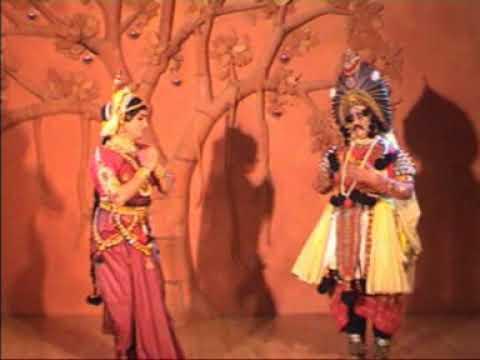
I hereby list a few suggestions for Yakṣagāna artistes, especially to enrich their āṅgikābhinaya and realise its value.
• It is important to ensure that the strī-veṣas are more graceful and gentle. This can be achieved by blending the movements of Yakṣagāna with the movement vocabulary of the Nāṭyaśāstra. Movements will need to be adapted to suit the nature of the character.
• Āṅgikābhinaya of puruṣa-veṣa will need to go well with the...
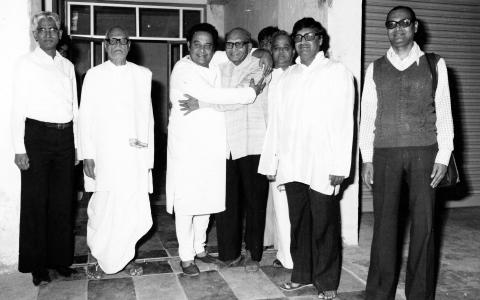
Connoisseurship
Gorur’s experiences in the Pension Office and his description of the splendorous Narasiṃhasvāmī jātrè[1] are rich with rasa.
Malligèhaḷḷi’s barber escapes from the village because his earnings aren’t sufficient. The alternative barber who had been arranged with great difficulty, after some time, became unyielding and obstinate owing to some reasons. The faces of all the village folk turn into forests. Joḍīdār[2] Narasiṃhācārya...

ಕಾಳಪ್ಪ. ಇವನ ಹೆಸರು ಯಮಧರ್ಮನ ಸಂಕೇತವೂ ಹೌದು, ಕಾಲದ ಸಂಕೇತವೂ ಹೌದು. ಸದಾ ದೇಶ-ವಿದೇಶಗಳಲ್ಲಿ ತಿರುಗಾಡುವ ವೃತ್ತಿಪರನನ್ನಾಗಿ ಕಾಳಪ್ಪನನ್ನು ಚಿತ್ರಿಸುವ ಮೂಲಕ ಭೈರಪ್ಪನವರು ಕಾಲದ ಚಲನಶೀಲತೆಯನ್ನು ಸೂಚಿಸಿದ್ದಾರೆ. ಸಾವನ್ನೂ ಸೇರಿದಂತೆ ಜವರಾಯಿಯ ಜೀವನದ ಹಲವು ಸಂಗತಿಗಳನ್ನು ಅವನ ಡೈರಿಯ ಮೂಲಕ ಕಾಳಪ್ಪ ತಿಳಿದುಕೊಳ್ಳುವುದು ಕಾಲದ ಸಾಕ್ಷಿಸ್ವಭಾವವನ್ನು ಧ್ವನಿಸುವಂತಿದೆ. ಈ ಹಿನ್ನೆಲೆಯಲ್ಲಿ ನಾವು ಪಾತ್ರವಿಶ್ಲೇಷಣೆಗೆ ತೊಡಗಬಹುದು. ಕಾಳಪ್ಪನನ್ನು ಅವನ ಅರವತ್ತೊಂದನೆಯ ವಯಸ್ಸಿನಲ್ಲಿ ಸಾವಿನ ಆಲೋಚನೆ ಆವರಿಸಿಕೊಳ್ಳುತ್ತದೆ. ಆತನ ಮಾತಿನಲ್ಲಿಯೇ ಹೇಳುವುದಾದರ...
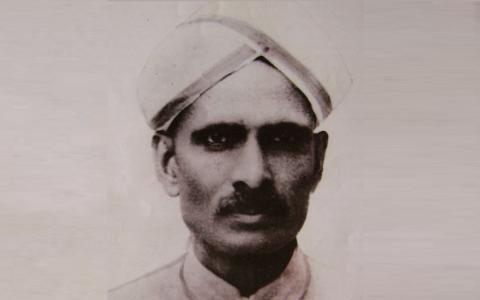
सन्तोषं जनयेत् प्राज्ञः तदेवेश्वरपूजनम्
[The eminent should create joy for others, that is the same as the worship of Īśvara]
The ancestors of the Late Sri. T S Venkannayya hailed from Chitradurga district of the Mysore province. His father’s name was Subbanna. His mother was Lakshmidevamma. Subbanna was tall and lean, but an active person. Though he did not possess a degree upon completing any significant exam, he was reasonably educated...

The Story of Malayavatī
In the city of Ujjayinī lived an artist called Nagarasvāmī. Once every two days, he painted a beautiful portrait of a woman and offered it to king Vikramāditya as a gift. One day he forgot his routine, and by the time he realised it, it was too late. He grew worried about what to do next. At that time, a traveller from a distant land came and gave him a bag made of leather and went on his way. When Nagarasvāmī opened it,...
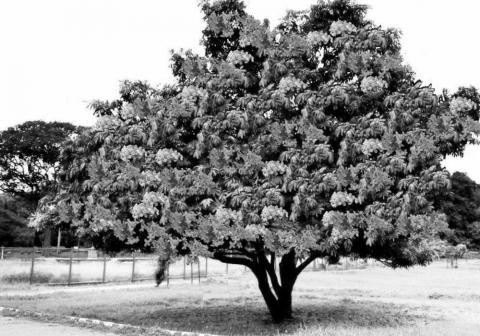
The war ended. Laṅkā was captured. Hanumān conveyed the news of Śrīrāma’s victory to devī Sītā. Was there any limits to her joy? “Soumya! Nothing in this world is worth the news which you have conveyed to me.” What would Hanumān desire? He saw all the rākṣasīs who were entrusted to guard devī Sītā, some mischievous idea sprung up. “Devī! Please permit me to do this! These rākṣasīs tortured you so much. I want to avenge that! I want to bite their...
